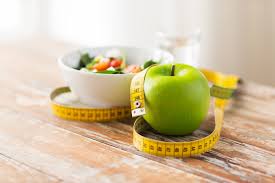Introduction:
A balanced diet is essential for maintaining good health and well-being. It provides the nutrients your body needs to function correctly, supports growth, and reduces the risk of chronic diseases. In this blog, we’ll delve into the importance of diet nutrition, the key components of a healthy diet, and how to build a balanced meal plan that suits your needs.
1. What is Diet Nutrition?
Diet nutrition refers to the selection and consumption of foods that provide the necessary nutrients your body requires. These nutrients include macronutrients (like proteins, fats, and carbohydrates) and micronutrients (such as vitamins and minerals). The goal is to provide your body with everything it needs to maintain optimal health.
2. Key Components of a Balanced Diet:
-
Proteins: Proteins are essential for muscle growth, repair, and immune function. Sources of protein include meat, fish, eggs, beans, and nuts.
-
Carbohydrates: Carbohydrates provide the body with energy. Healthy sources of carbs include whole grains, fruits, vegetables, and legumes. Avoiding processed sugars and refined carbs can help maintain steady energy levels.
-
Fats: Fats are crucial for cell structure, brain function, and the absorption of certain vitamins. Focus on healthy fats like avocados, olive oil, and nuts while limiting saturated and trans fats.
3. Micronutrients in Diet Nutrition:
-
Vitamins: Essential for immune function, bone health, and vision, vitamins like Vitamin C, Vitamin D, and Vitamin A should be incorporated into daily meals.
-
Minerals: Minerals like calcium, iron, and potassium are necessary for muscle function, bone health, and fluid balance.
4. Why a Balanced Diet is Important:
-
Promotes Overall Health: A well-rounded diet supports healthy metabolism, immune function, and growth.
-
Prevents Chronic Diseases: A balanced diet can reduce the risk of conditions such as heart disease, diabetes, and obesity.
-
Boosts Energy: Proper nutrition ensures your body has the fuel it needs to function, keeping you energized throughout the day.
5. Tips for Building a Healthy Diet:
-
Eat a Variety of Foods: Incorporate different food groups to ensure you’re getting all the essential nutrients.
-
Watch Portion Sizes: Eating too much, even healthy food, can lead to weight gain. Pay attention to portion sizes.
-
Stay Hydrated: Water is crucial for digestion, circulation, and overall function. Aim for 8-10 glasses a day.
Conclusion:
Diet nutrition is the foundation of a healthy lifestyle. By focusing on nutrient-dense foods, maintaining balance, and staying hydrated, you can optimize your health and reduce the risk of disease. Remember, a healthy diet is not about restriction; it’s about making mindful, nutritious choices.











